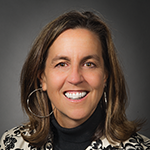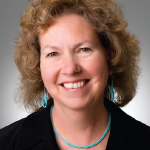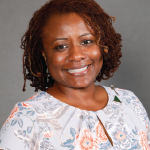
abstract / shutterstock.com
Over the past 16 months, the world has shone a bright light on the importance of diversity, equity and inclusion (DEI). Although the College has been focused on diversity initiatives since 2020, the interprofessional division of the College, the ARP, has recently taken a deeper dive into DEI initiatives in its processes, procedures and volunteering. Our goal is to dispel the notion that who you know can get you where you want to be, whether that’s a position on a committee or a special task force, or even as a member of the executive leadership.
Over the past three years, ARP staff, volunteers and executive leaders have worked together to bring DEI to the forefront and increase transparency in volunteering. We believe that everyone, no matter their discipline, background, network, orientation, race, religion, age or career stage, should have equal opportunities and a respected voice and seat at the table. As the ARP moves into the future, we want every member to see a place where they fit in the organization, so we can fulfill the College’s mission to “empower rheumatology professionals to excel in their specialty” through volunteering, networking and professional, personal and leadership development.
Why Should You Volunteer?
Being a volunteer allows you to be a part of a unique group of people who use their voices, insight and expertise to shape the future of rheumatology. Through volunteerism, you have the opportunity to work on current projects, such as developing online education with the eLearning Subcommittee, developing onboarding programs with the Practice Committee or selecting the slate of volunteers and merit awardees with the ARP Membership & Nominations Committee.
Volunteering also allows for leadership development. ARP members are encouraged to be leaders through service on various committees with the ACR, the ARP and the Rheumatology Research Foundation. As a volunteer, you can share your thoughts on various topics, question the process when things don’t make sense and encourage others to change the landscape of rheumatology.
As part of leadership development, volunteers are invited to attend annual leadership development conferences, where they can cultivate their leadership skills. Topics include team building, having difficult conversations, engaging members across generations and negotiating. You may also find a mentor or collaborators with similar interests.
Throughout your volunteer journey, you’ll find numerous opportunities for community building with rheumatology professionals from around the globe. Diversity, equity, inclusion and transparency are crucial to ensuring that various interests, professional perspectives and solutions to education, research and practice challenges are present.
DEI is a theme inherent to each benefit of volunteering, so to ensure each committee/group has representation from various member constituencies, the nominations committee collates aggregate data and evaluates the needs of each group while making placements. The committee exhausts every option to ensure members come from diverse backgrounds, geographic areas, career stages, practice settings and professional disciplines, as well as differ in personal characteristics.
Janet’s Volunteer Story
My volunteer journey started when I was encouraged by rheumatologists Thomas Medsger Jr., MD, and Virginia Steen, MD, to present at an ARP meeting many years ago. At that meeting, I connected with several rehabilitation colleagues from Pittsburgh, who recruited me for the Practice Committee of the AHPA [Allied Health Professions Association], as it was called back then. After my first conference, I was hooked. I was stimulated and inspired by the research done by health professionals, and I enjoyed networking with rheumatologists and health professionals who were so knowledgeable about scleroderma and other conditions. Since then, I have served on and chaired or co-chaired numerous committees, such as the Research and Annual Meeting Planning committees, acted as a grant reviewer for the Rheumatology Research Foundation and served as the ARP liaison to the ACR’s Education and Research committees. Volunteering has been inspiring and rewarding personally and professionally, and through the ACR/ARP, I have developed lifelong friendships and collaborations.
What Opportunities Are Available?
Many volunteer opportunities exist for rheumatology professionals with different levels of commitment, interests and skills. General volunteers serve three-year terms that begin after the annual meeting. Special project volunteers serve in micro-opportunities on an as-needed basis.
The ARP has six committees that members can volunteer with: 1) Executive; 2) Membership and Nominations; 3) Practice; 4) eLearning; 5) Annual Meeting Planning Committee; and 6) Research.
ARP members can also submit a nomination to be placed on ACR and Foundation committees through the volunteer process.
Time commitments and responsibilities vary, but generally, committee members are expected to dedicate a minimum of about three hours per month to fulfilling their volunteer duties. This includes attending meetings and completing any committee work that you are asked to work on.
Opportunities are also available for those interested in executive leadership, with a significant focus on diversity, equity, inclusion and transparency. Our goal is to cultivate your interest in leadership and provide you with the necessary tools to succeed.
With the creation of the ARP Leadership Pathway, there has been a swift shift to mentoring future leaders and providing them with a wide range of experience and education about the inner workings of the ACR so they can help the College modernize, engage and grow. The Leadership Pathway also ensures that everyone on a committee meets the leadership requirements and creates fairness in the volunteer process. If you are interested in executive leadership with the ARP, we invite you to submit your nomination form this November.
Christine’s Volunteer Story
I was encouraged to join the ARP by my physician mentor, initially as a way to learn about this complex medical specialty. During my first annual meeting, I met other health professionals working in rheumatology at the ARP networking luncheons. From there, I was advised to consider volunteering. My first experience was on the Membership and Nominations Committee. I was impressed by the CVs and résumés we reviewed from our volunteer members. The positive energy and excitement about the specialty were infectious. My next position was as an ARP representative on the ACR Committee on Rheumatology Training and Workforce Issues. The opportunity prepared me for a role on a special task force that helped create a training curriculum and Foundation grant for nurse practitioners and physician assistants new to rheumatology. When I mentioned that we needed more pain topics at the annual meeting, I was invited to serve on the Annual Meeting Planning Committee, which was a blast. Imagine coming together with 10–15 diverse professionals to plan a scientific meeting in three or four days. My volunteer journey with the College has been enriching. When the pandemic became a reality, I can honestly say I have never felt alone. The relationships I’ve built with professionals from all disciplines across the country have provided me with genuine support and encouragement every day. This is all a result of saying, ‘Yes‚ I want to volunteer!’
How Can I Become a Volunteer?
The first step to becoming a volunteer is to be a current member in good standing—meaning your membership dues are current. Volunteering is a benefit exclusive to members of the College, so the Membership and Nominations Committee can offer opportunities only to members. Student members are encouraged to participate, and several volunteer positions are available for students each year.
The next—and most critical—step is to submit your nomination form. As part of the DEI and transparency initiatives, the ARP nominations committee only considers those who have submitted a volunteer nomination form for volunteer positions. This ensures everyone has an equal opportunity to be placed in volunteer roles that cater to their interests and provides a wide range of experience. It also ensures fairness throughout the process by eliminating the need for an internal connection to be a volunteer. The volunteer nomination form can be found in your member account on rheumatology.org under “My Nominations” beginning Nov. 1.
To submit your form as a self-nomination, meaning you are expressing interest for yourself, you need to name the top three committees you are interested in, and include your updated CV and a statement of interest. In the case of a peer nomination, meaning you are expressing interest in having someone else serve, you need to name the top three committees your peer would be a good fit for and include their updated CV and a letter of recommendation, indicating why you are nominating your peer.
The documents submitted with your nomination form affect which volunteer opportunities you are placed in. The Membership and Nominations Committee uses the documentation to evaluate your interest and skills. As the ARP moves toward transparency, we encourage you to include the necessary information in your documentation so you are evaluated on all your skills and interests.
When Can I Volunteer?
The time is now. Volunteer nominations are open Nov. 1–Feb. 1 for ARP members. If you are interested in nominating yourself or a deserving colleague for a volunteer position, log on to your account on rheumatology.org, select My Nominations and submit your form. Questions about the nominations process can be forwarded to [email protected]. For more information about volunteering, click here.
The ARP is excited about the opportunity to bring diversity, equity, inclusion and transparency to the volunteer process. The ARP staff and leadership are committed to bringing the interprofessional perspective to every committee, work group, task force and special project opportunity throughout the College. We invite you to join us on this journey by submitting your volunteer interest form today.
 Christine Stamatos, DNP, ANP-C, directs the Fibromyalgia Wellness Center within the Division of Rheumatology at Northwell Health, Huntington, N.Y. She is also assistant professor at Hofstra Northwell School of Graduate Nursing and Physician Assistant Studies, Hempstead, N.Y. She became the ARP’s 52nd president in November 2020.
Christine Stamatos, DNP, ANP-C, directs the Fibromyalgia Wellness Center within the Division of Rheumatology at Northwell Health, Huntington, N.Y. She is also assistant professor at Hofstra Northwell School of Graduate Nursing and Physician Assistant Studies, Hempstead, N.Y. She became the ARP’s 52nd president in November 2020.
 Immediate Past ARP President Janet Poole, PhD, OTR/L, FAOTA, is a professor and division chief of the occupational therapy graduate program in the School of Medicine at the University of New Mexico, Albuquerque. Dr. Poole is also the chair of the ARP’s Membership & Nominations Committee.
Immediate Past ARP President Janet Poole, PhD, OTR/L, FAOTA, is a professor and division chief of the occupational therapy graduate program in the School of Medicine at the University of New Mexico, Albuquerque. Dr. Poole is also the chair of the ARP’s Membership & Nominations Committee.


